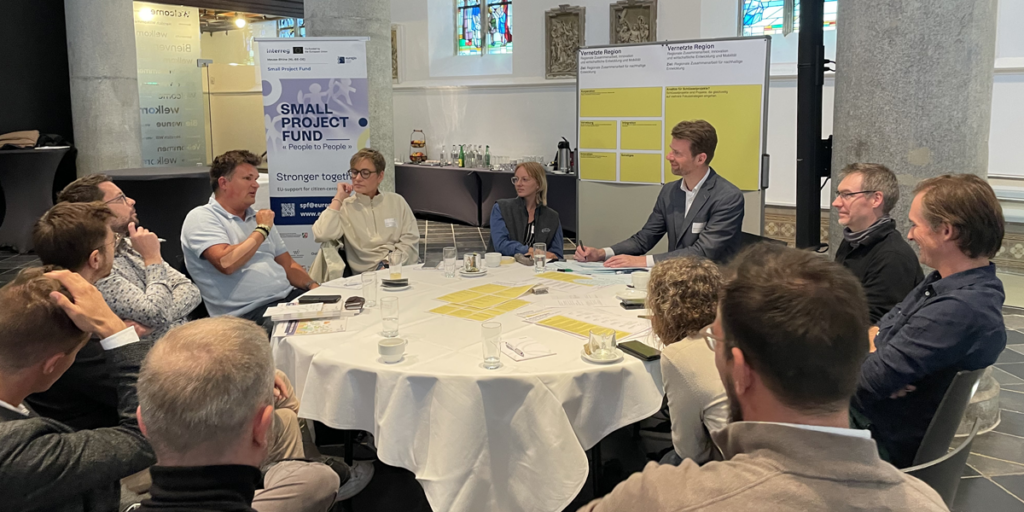
2025/2026: Ostbelgien als Raumlabor (OBL’EU). Ostbelgien (Deutschsprachige Gemeinschaft in Belgien), Parkstad Limburg and the Chair of Urban Design at RWTH Aachen are launching a joint, trinational planning process in the Meuse-Rhine Euregion: project OBL’EU. The aim is to bring together previously separate spatial initiatives and experiences and translate them into shared key project ideas—enriched by specific inputs from East Belgium. At the heart of the project is cross-border collaboration: aligning planning approaches, coordinating priorities, and building a shared understanding of how spatial planning can strengthen a region’s overall attractiveness and competitiveness. The process is built around exchange, participation and awareness-building as core elements. Different planning cultures are made visible and connected in a productive way, so that diverse perspectives lead to a shared mode of working. An international team brings together partners from academia (RWTH Aachen), politics and public administration (Ostbelgien/DG, Parkstad Limburg), and the economy, including the East Belgium business development agency, planning offices of the L’EAU Consortium, and landowners. The New Regional Bauhaus in Heerlen is integrated as a platform for cooperation, learning and knowledge transfer. A distinctive component is the involvement of “ex-citizens”—people who have moved away—as well as newly arrived residents from neighbouring regions. Their outside perspective helps identify strengths and blind spots more clearly and generates fresh impulses for the region’s further development. The project proposal was approved on 2 July 2025 by the SPF Selection Committee and is funded through the Small Project Fund “People to People”, which supports cooperation between people and organisations in the tri-border area of the Netherlands, Belgium and Germany.

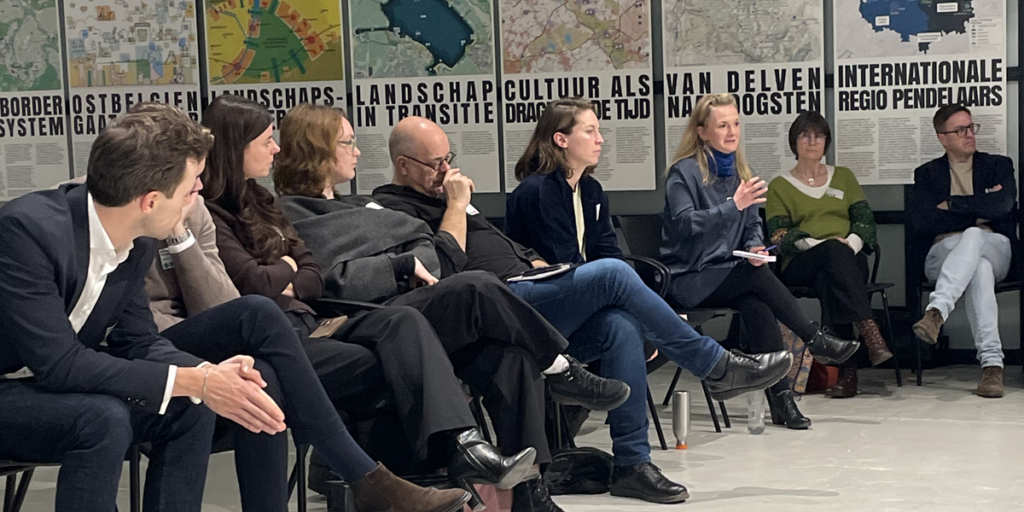
4 DEC 2025: Expert Session: Deepening the Einstein Telescope EMR Narrative. At the New Regional Bauhaus, the Einstein Telescope EMR bidbook team hosted an expert session dedicated to narrative development for the Euregio Meuse-Rhine. Bringing together participants from Belgium, Germany and the Netherlands, the session focused on strengthening a shared storyline: why the EMR is uniquely positioned to host the Einstein Telescope—and how this scientific infrastructure can act as a catalyst for cross-border transformation. Experts from multiple disciplines explored the EMR through several lenses, including spatial development, economic value creation, talent and education pathways, and socio-economic challenges and opportunities. A central theme was the region’s potential to evolve from a historically industrial, linear economy into an integrated, innovative and circular knowledge region supported by stronger connectivity, collaboration and a shared identity across borders. The session also built on the approach of Marc and Nicole Maurer, whose work connects strategy, urbanism and transition, and whose Eutropolis narrative has helped conceptualise the EMR as a coherent (sub)urban network. Insights from the discussion will feed directly into the bidbook narrative and help articulate both the scientific excellence and the regional added value of the Einstein Telescope.
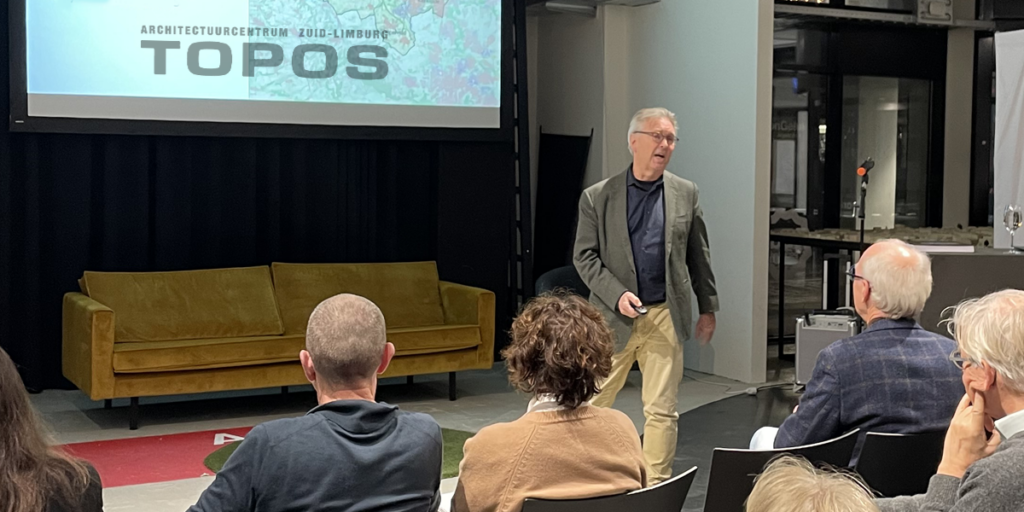
24 NOV 2025: TOPOS Zuid-Limburg presents: “TOPOS Looks Across the Border” – an evening on the latest developments in the Parkstad Region, explained by the Director of Stadsregio Parkstad in the context of the Euregio and what this means for Heerlen as the region’s central municipality. The New Regional Bauhaus (NRB) will then present its first results of the pilot phase. These include findings and design strategies developed for the Meuse-Rhine region, and the opportunities they create for a sustainable future for Parkstad, and for Heerlen in particular. Key challenges such as circularity and water management are central priorities that require joint action across borders. From a German perspective, these themes will be reflected upon, highlighting their relevance for the city of Aachen and the StädteRegion Aachen.
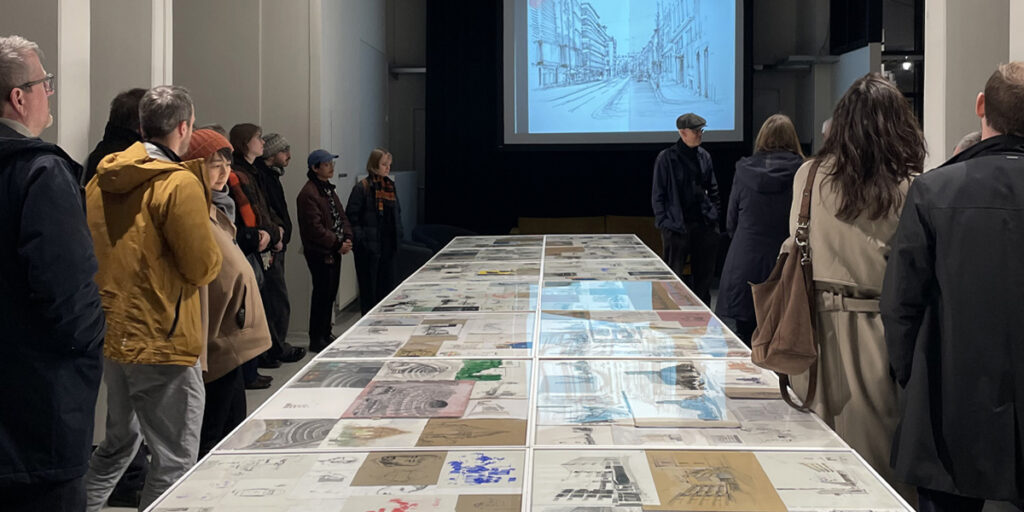
22 NOV 2025: The Skizzen•klasse presents: Breslau in Heerlen. On Saturday, 22 November 2025 at 5:00 PM, the exhibition Breslau in Heerlen will open at the New Regional Bauhaus (Promenade 14, Heerlen, NL), featuring sketches, watercolours and sketchbooks by the new Aachen-based artists’ association Skizzen•klasse. The works were created in June 2025 during a study trip to Wrocław (Breslau), Poland. Skizzen•klasse brings together architects, artists and students who view analogue drawing as a tool for observation and spatial analysis. Their focus is on so-called hybrid places—at the intersection of city, industry and landscape. The exhibition will be opened by Maastricht architect Fred Humblé and runs until 3 December 2025. Opening hours: 23, 29 and 30 November, 11:00 AM–4:00 PM.
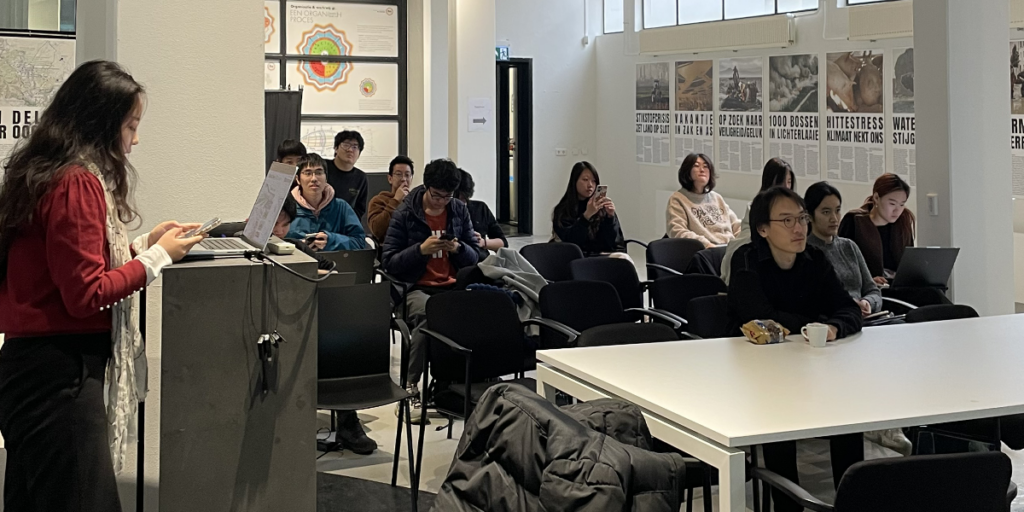
14 NOV 2025: Winterschool: Trans Regio Express. RWTH Aachen (Chair of Urban Design), TU Berlin and the North China University of Technology hosted an international Winter School in collaboration with the International Learning Lab (ILL). During the programme, students worked on the Trans Regio Express project—an ongoing research initiative exploring station areas in the Euregio Meuse-Rhine as strategic nodes for cross-border connectivity and regional development. Focusing on two case-study locations, students investigated the station environments of Herzogenrath (Germany) and Eygelshoven/Kerkrade (the Netherlands). Through field observations, spatial analysis and design research, they explored how these stations can evolve beyond transport functions into lively, accessible and resilient places—linking mobility with housing, public space, landscape and local identity across borders. The Winter School created a shared learning environment between institutions and cultures, connecting academic research with real regional challenges and opportunities. The results contribute to the broader Trans Regio Express agenda and support a long-term vision for integrated station area development in the Euregio Meuse-Rhine.
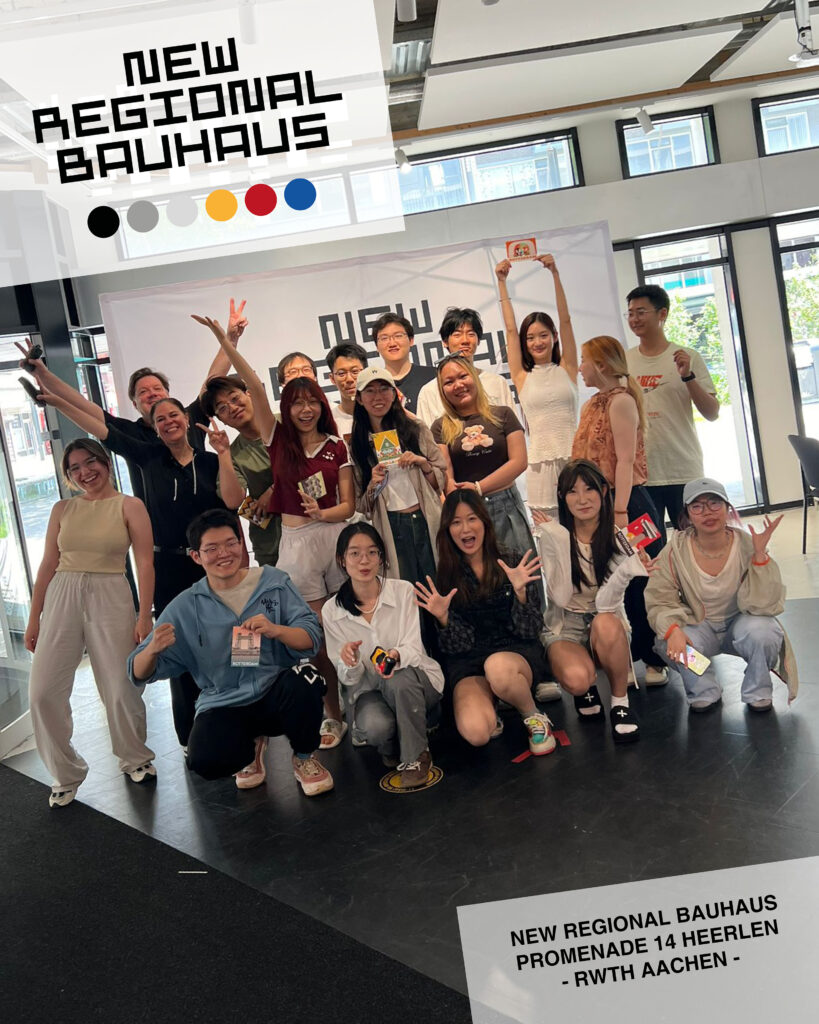
Summerschool with RWTH Aachen, TU Berlin and North China University of Technology.
https://vimeo.com/1100356781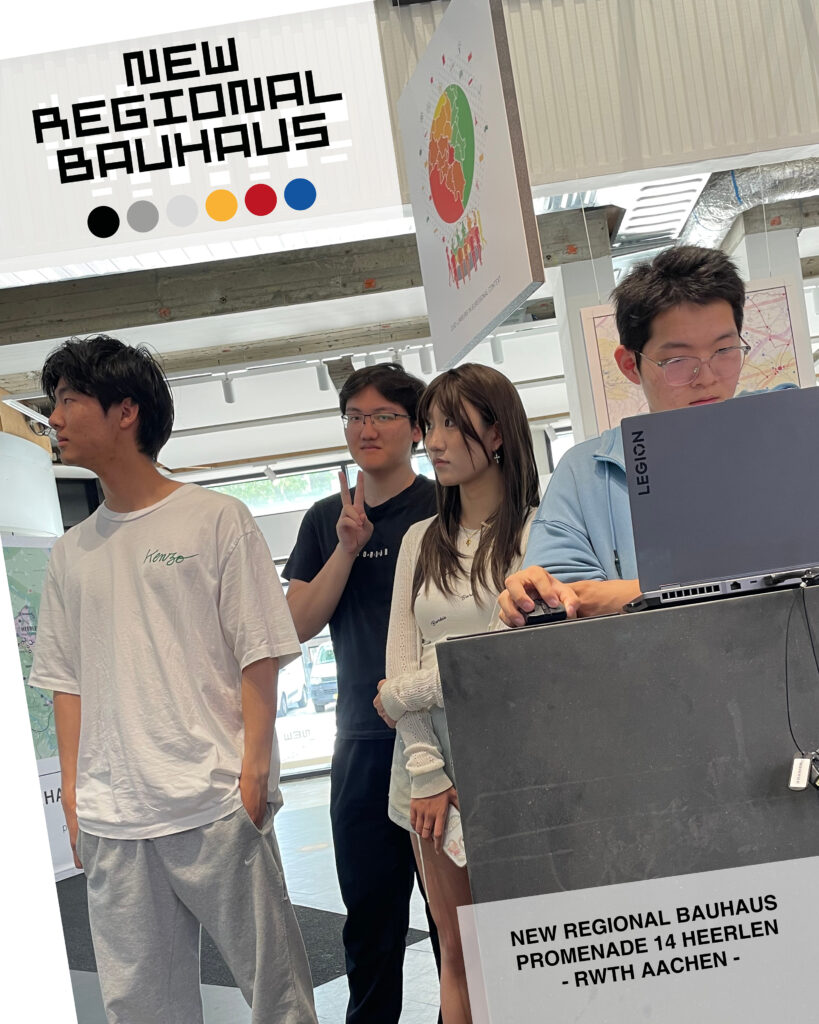
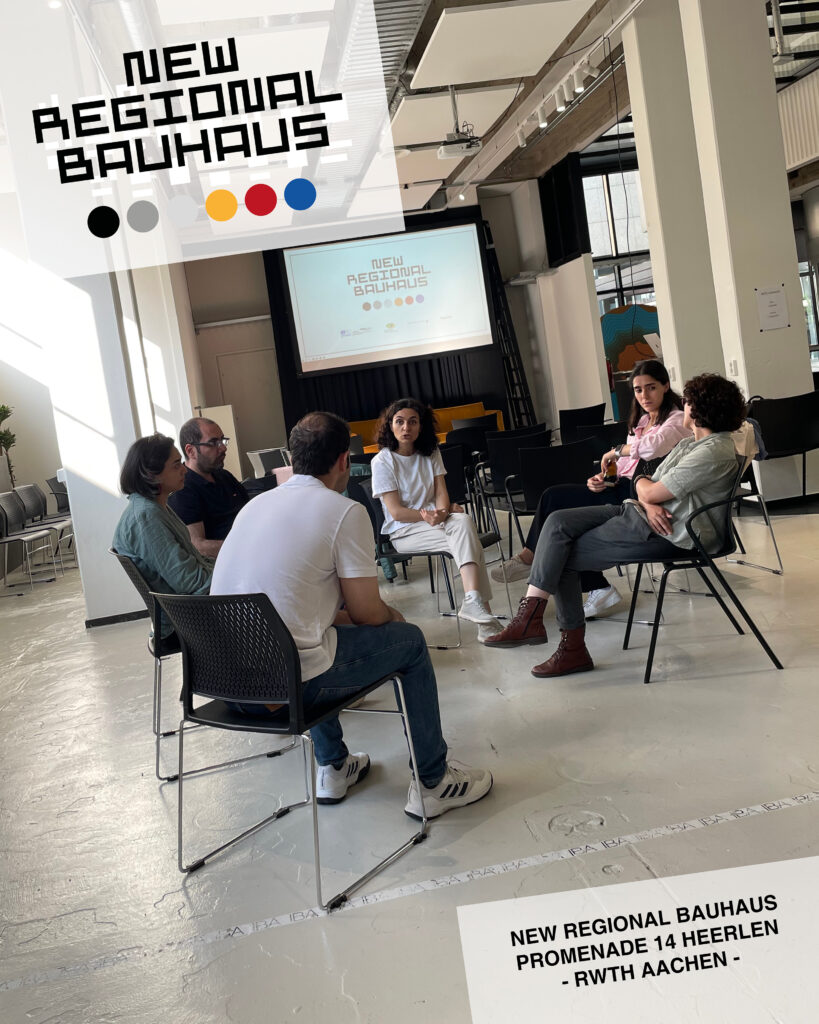
RWTH Aachen Elective Course (Chair of Urban Design)
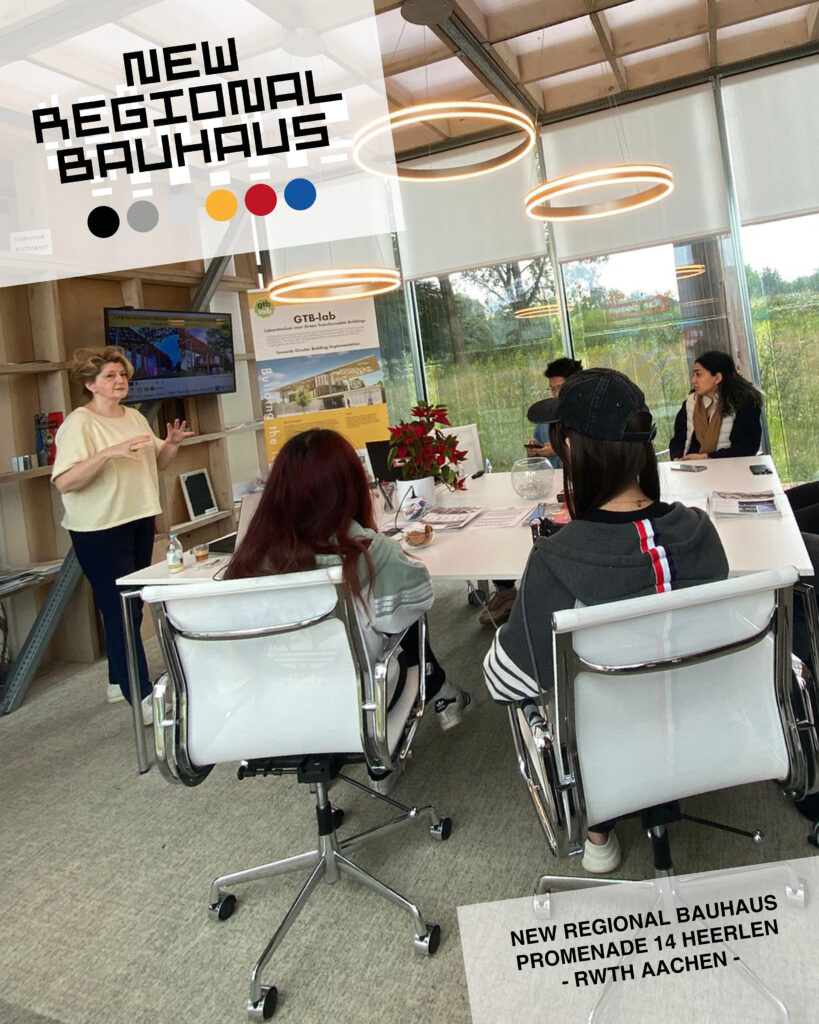
Exchange with GTB Lab.
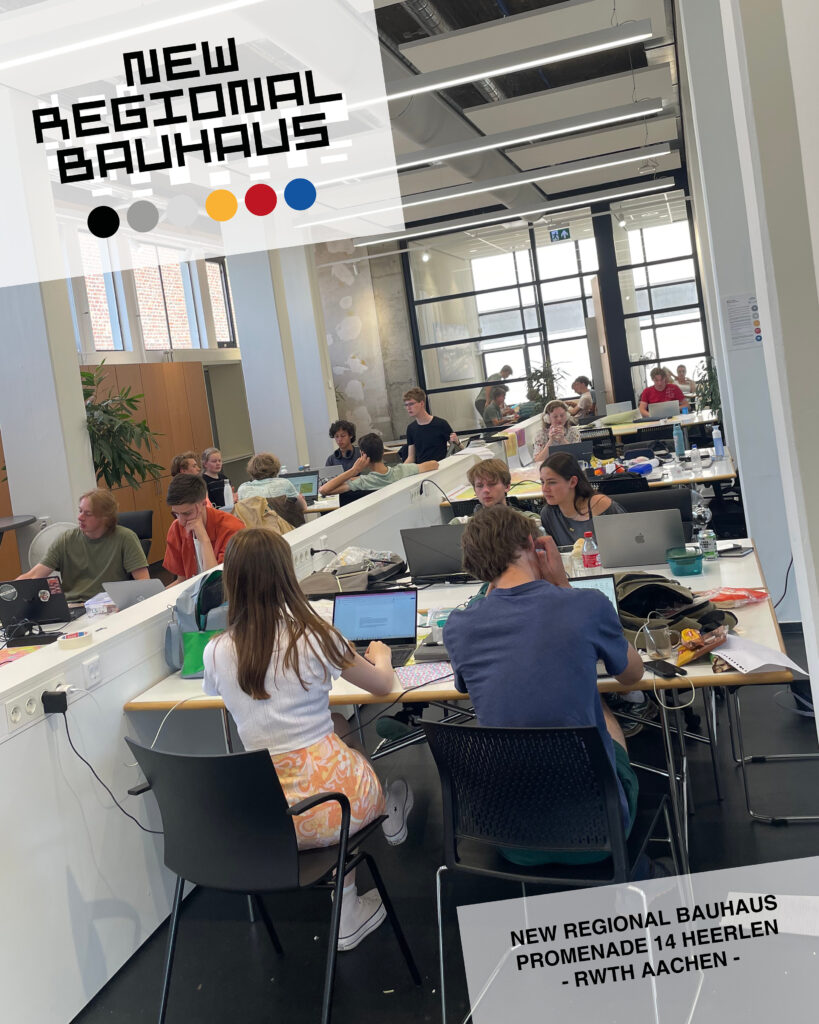
Wageningen University and Research at work at the New Regional Bauhaus in Heerlen
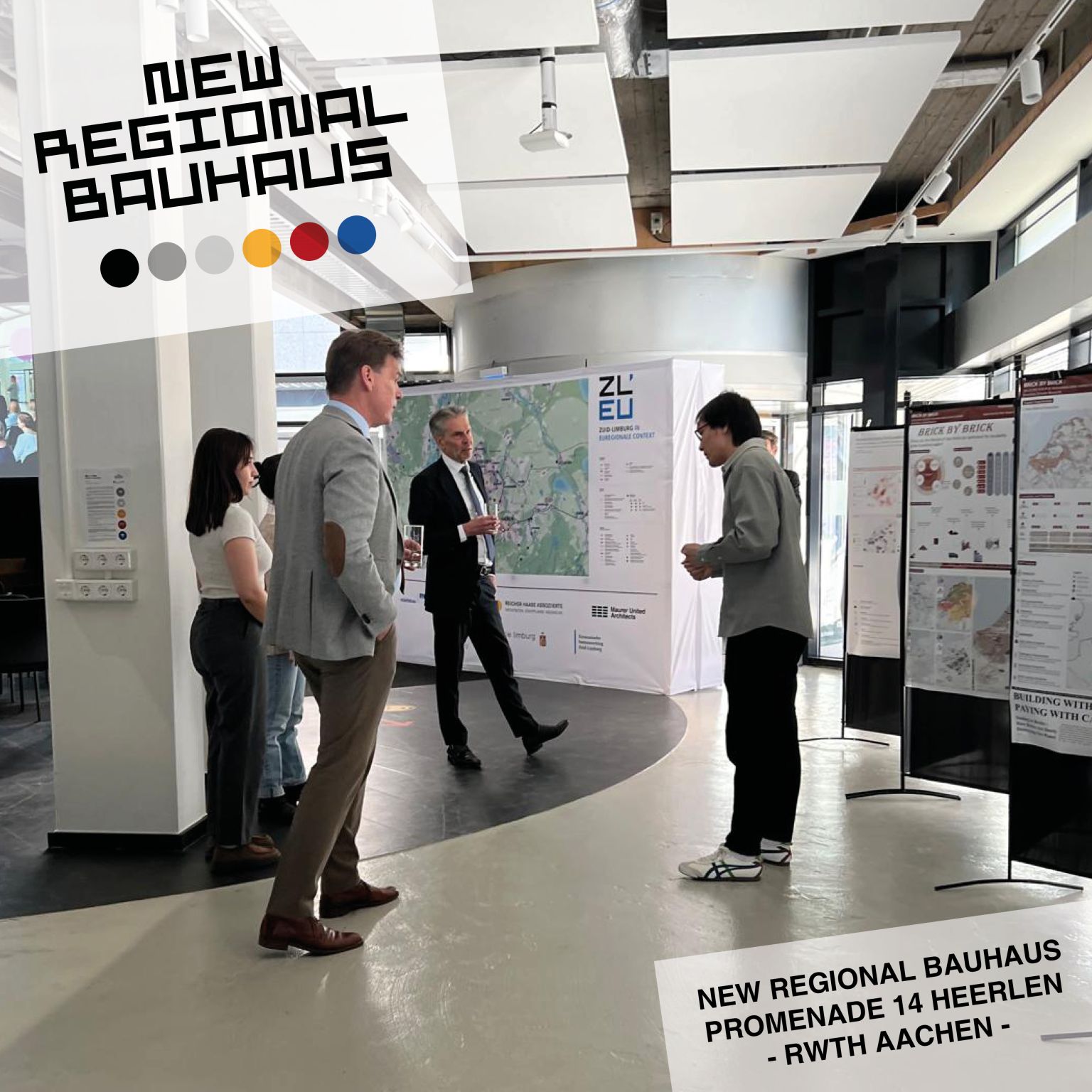 On 20 March 2025, Dutch Prime Minister Dick Schoof and Heerlen Mayor Roel Wever visited the New Regional Bauhaus. The picture shows them in conversation with RWTH Students.
On 20 March 2025, Dutch Prime Minister Dick Schoof and Heerlen Mayor Roel Wever visited the New Regional Bauhaus. The picture shows them in conversation with RWTH Students.
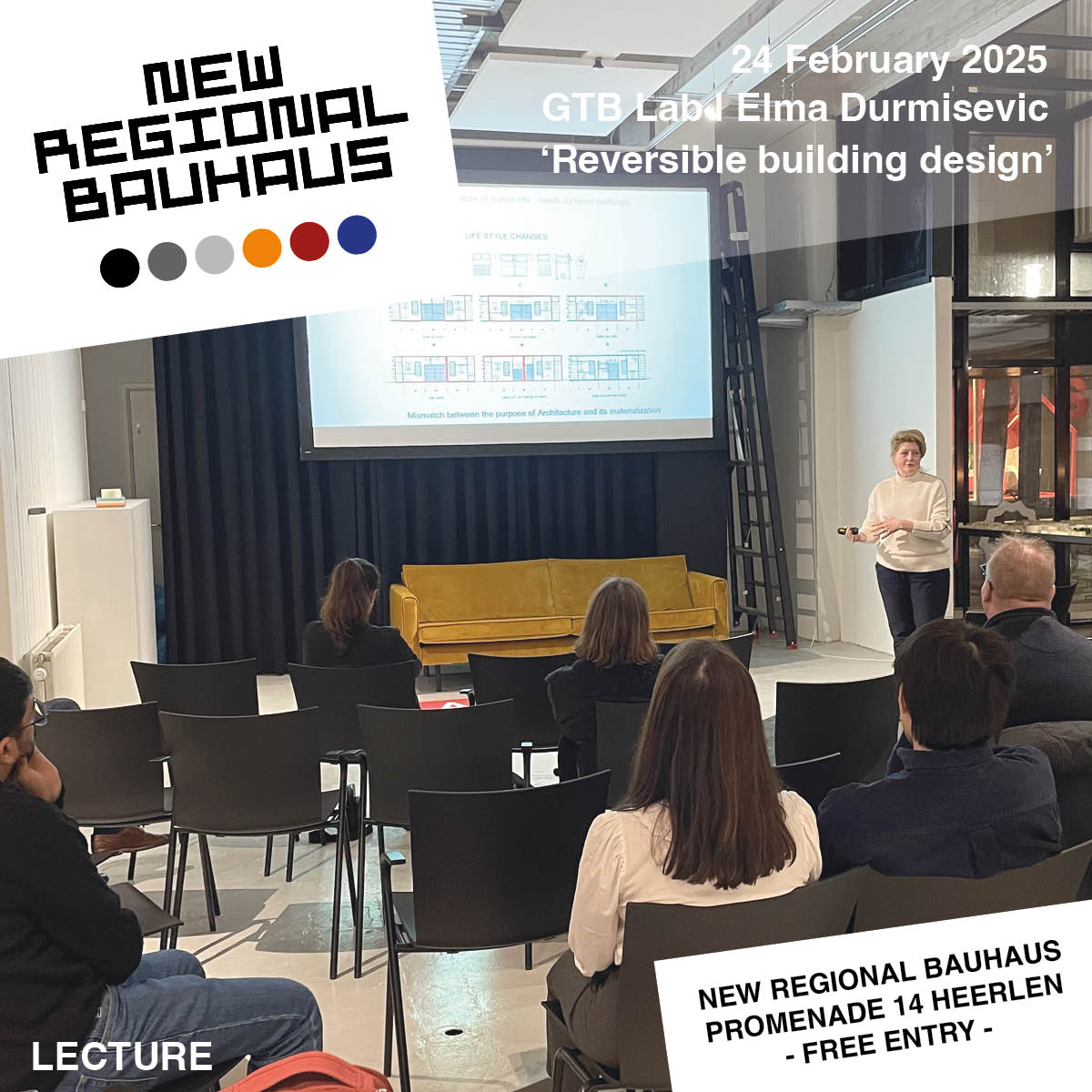
Last Monday at the New Regional Bauhaus, Dr. Elma Durmisevic, a pioneer in adaptive building design and circular building, delivered an inspiring lecture on ‘Reversible building design’. Students had the unique opportunity to exchange ideas with her, diving deep into the potential of circular building materials and innovative design approaches.

This semester, international students from RWTH Aachen University are developing visionary spatial concepts for circular construction materials in Europe’s most densely urbanized region—the Eurodelta, aligning with the focus of the research project ASSET. Enrolled in the master’s program Transforming City Regions, students in the Eurodelta Circular Blueprint course explore the entire industrial business chain of brick, steel, concrete, and timber, integrating circular strategies into their production, transportation, usage, and reuse. Their innovative proposals demonstrate how the Eurodelta can become a model for cross-border circularity, showcasing sustainable approaches to construction materials and contributing to a greener, more resilient built environment.
Student Expo
RWTH Aachen | Städtebau | Transforming City Regions
‘EURODELTA Circular Blueprint’
New Regional Bauhaus
24 February – 31 March 2025
Free Entrance

The ‘Laboratory of European Architecture and Urbanism’ (L’EAU) is a research consortium by Städtebau | RWTH Aachen, Maurer United Architects and Reicher Haase Assoziierte. The team works on a continuous agglomeration plan between Meuse and Rhine.
Expo
L’EAU
‘Between Meuse and Rhine’
New Regional Bauhaus
01 May – 01 june 2024
Free Entrance
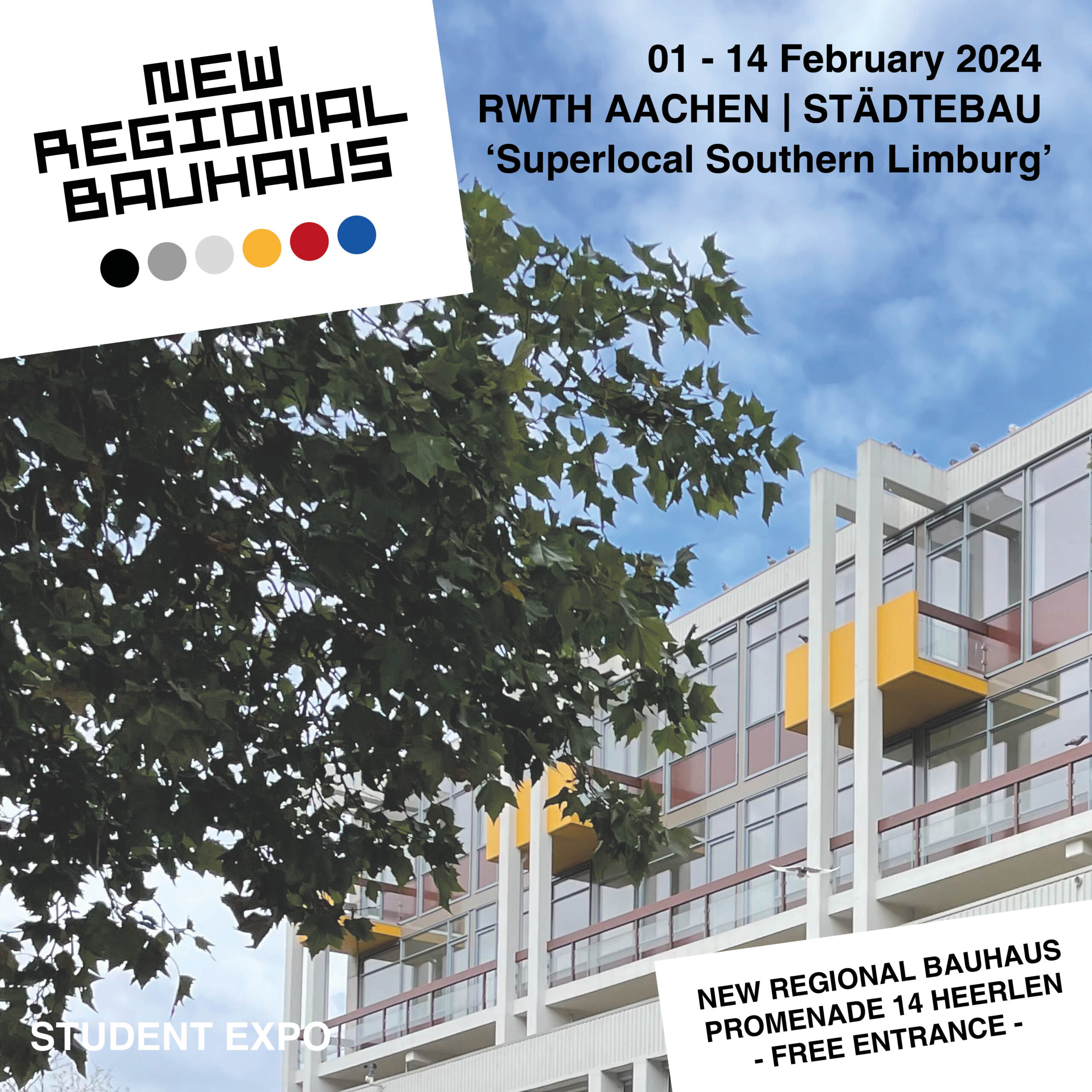
During the past semester, international students from RWTH Aachen University worked on future visions for a sustainable Southern Dutch Limburg at the ‘New Regional Bauhaus’ in Heerlen, based on principles of circularity. The students, enrolled in the master’s program ‘Transforming City Regions,’ focus on creating regional plans. The future visions for this region will be showcased at the Heerlen ‘dependance’ of RWTH Aachen University throughout the month of February.
Student Expo
RWTH Aachen | Städtebau | Transforming City Regions
‘Superlocal Southern Limburg’
New Regional Bauhaus
01-14 February 2024
Free Entrance
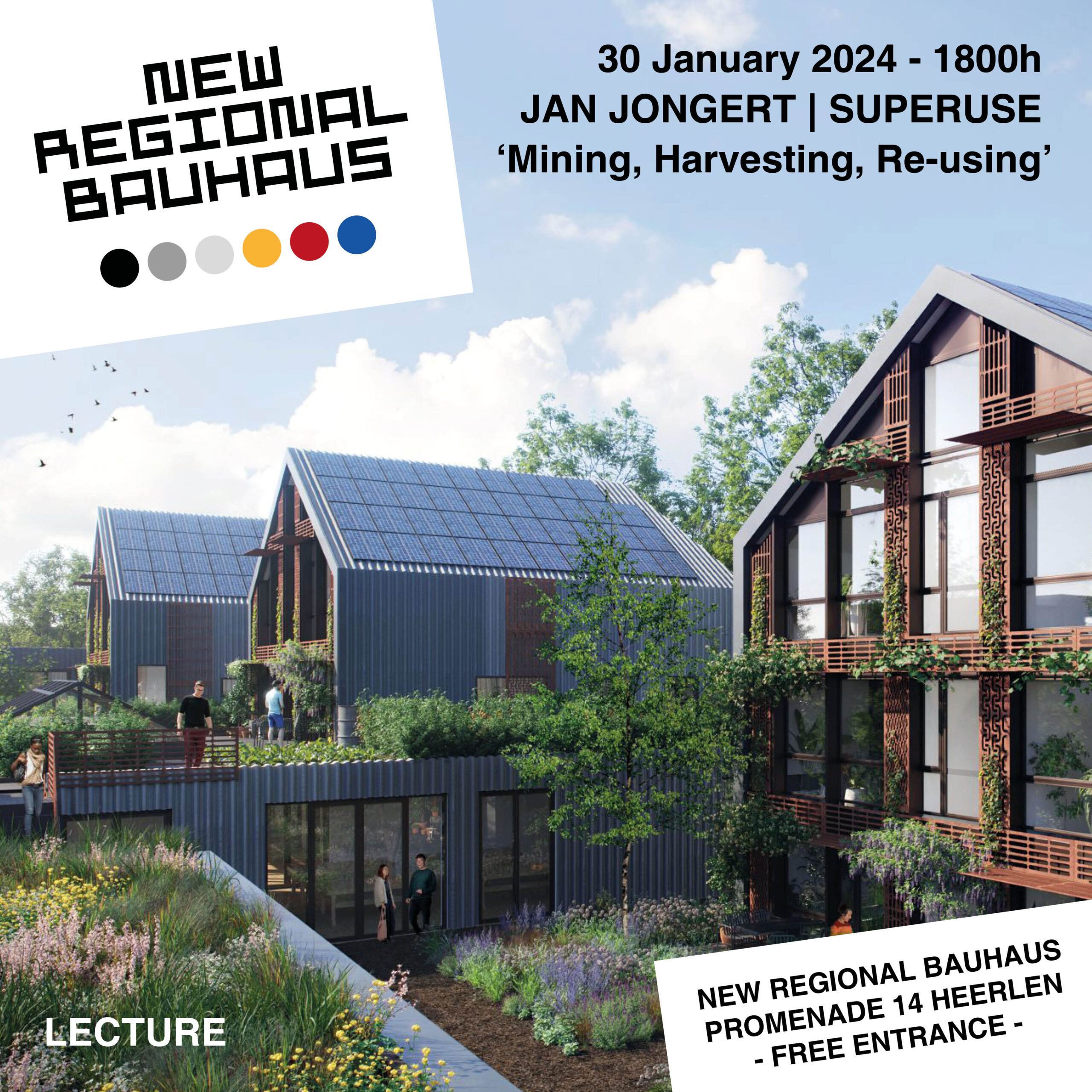
Jan Jongert is a Dutch pioneer in Circular Building. He is visiting professor at TU Delft and founder of Superuse Studios – an international architecture collective for circular and sustainable design. At Superuse Studios, a design is not considered as the beginning of a linear, but part of a circular process: A phase in a continuous cycle of creation and recreation, use and reuse. In his presentation, Jan Jongert will present different strategies for building sustainable architecture with reclaimed materials.
Lecture
Jan Jongert / Superuse Studios
‘Mining, Harvesting, Re-using’
New Regional Bauhaus
30 January 2024, 1800h
Free Entrance
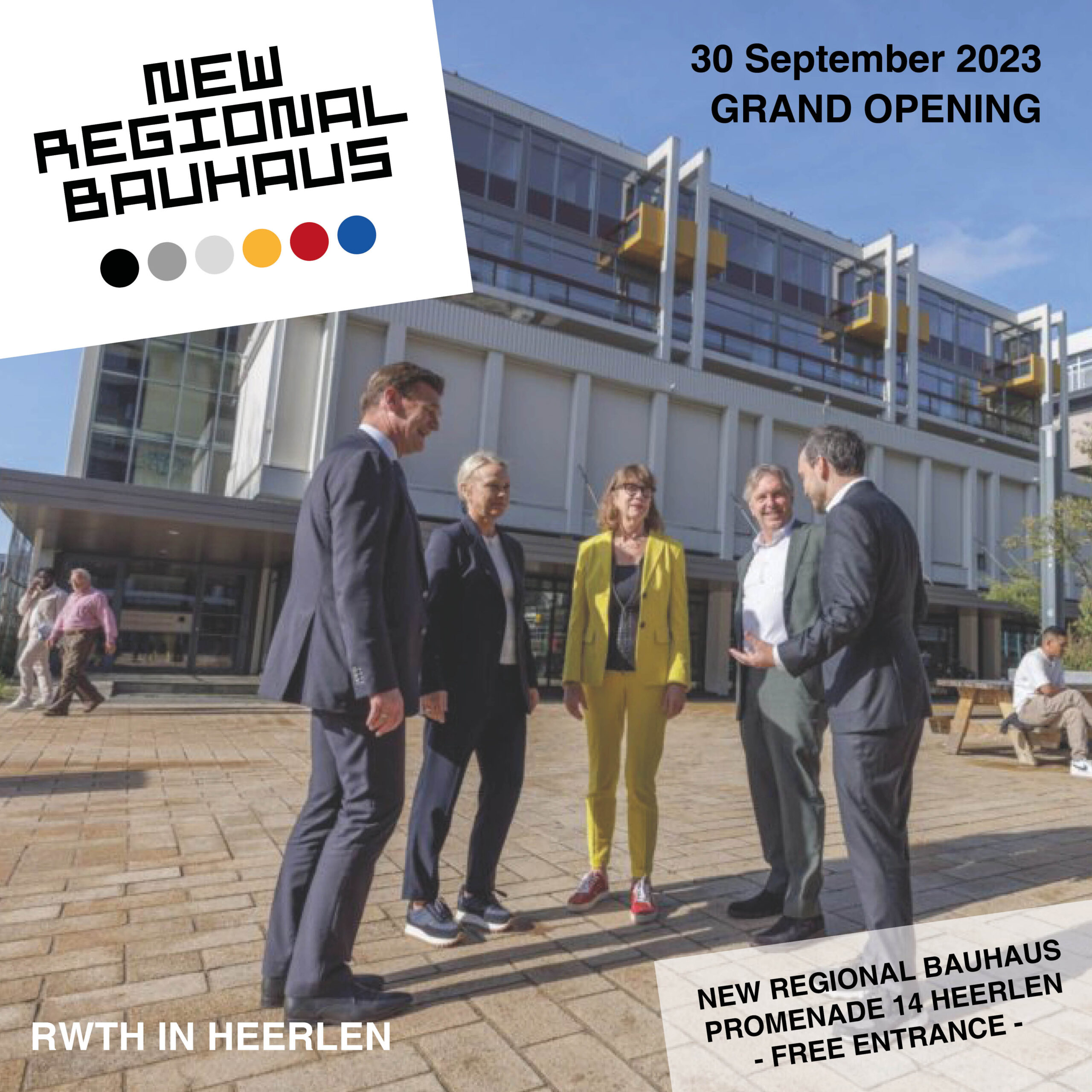
On September 30, 2023, we celebrated the opening of the New Regional Bauhaus with over 120 guests in Heerlen, Promenade 14. In their welcoming speeches, Heerlen’s Mayor Roel Wever, Vice-Rector Prof. Brück-Dürkop and Director of Stadsregio Parkstadt Peter Bertholet emphasized the importance of the New Regional Bauhaus for cross-border cooperation in the field of urban design and regional development.
The New Regional Bauhaus is a place for teaching and research, but also for the transfer of knowledge in the Rhine-Meuse region. In line with the UNESCO Chair, the focus is on cultural heritage and urbanism, but also on issues relating to transformation and structural change on a large scale. The Master’s program Transforming City Regions serves this purpose in particular.
